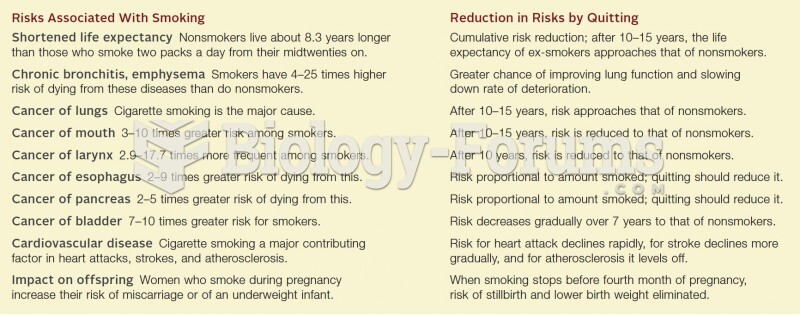This topic contains a solution. Click here to go to the answer
|
|
|
Did you know?
Eat fiber! A diet high in fiber can help lower cholesterol levels by as much as 10%.
Did you know?
The people with the highest levels of LDL are Mexican American males and non-Hispanic black females.
Did you know?
Automated pill dispensing systems have alarms to alert patients when the correct dosing time has arrived. Most systems work with many varieties of medications, so patients who are taking a variety of drugs can still be in control of their dose regimen.
Did you know?
Approximately 70% of expectant mothers report experiencing some symptoms of morning sickness during the first trimester of pregnancy.
Did you know?
Your chance of developing a kidney stone is 1 in 10. In recent years, approximately 3.7 million people in the United States were diagnosed with a kidney disease.
 Steps in protein synthesis: The DNA is used as a template to make mRNA (transcription). The mRNA is ...
Steps in protein synthesis: The DNA is used as a template to make mRNA (transcription). The mRNA is ...
 The tools and equipment needed to perform a compression test include a compression gauge, an air ...
The tools and equipment needed to perform a compression test include a compression gauge, an air ...





